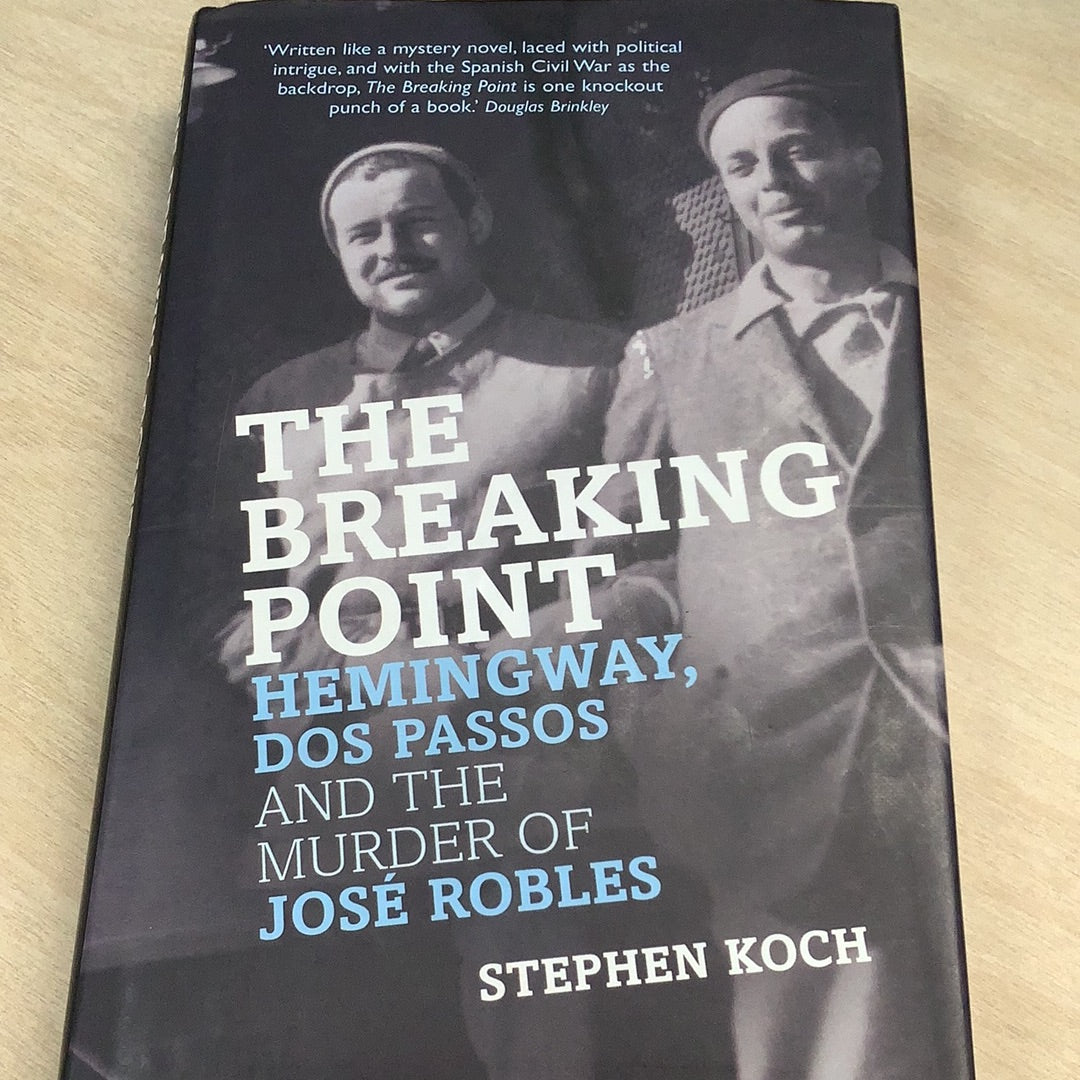Browse Books
Breaking point: Hemingway, Dos Passos and the murder of Jose Robles. Stephen Koch. 2006.
Breaking point: Hemingway, Dos Passos and the murder of Jose Robles. Stephen Koch. 2006.
Couldn't load pickup availability
When John Dos Passos walked into Ernest Hemingway’s room in the Florida Hotel in Madrid, the air was thick with tension. Hemingway was fuming, Dos Passos was caught off guard. They were there to witness the Spanish Civil War firsthand, but something more personal was going on: as Spain was unraveling thread by thread, so was their friendship.
Dos Passos was widely regarded as the literary voice of America’s new socially engaged generation - his face had been on the cover of Time the week the war broke out. And he had long considered Hemingway one of his best friends. Yet they were completely opposite in personality, with Dos Passos’s calm temperament and mild manner standing in stark contrast to Hemingway’s machismo.
They had arrived in Spain as comrades, leftist writers-in-arms. But when Dos Passos went looking for his close friend Jose Robles - a Spanish-born Johns Hopkins professor who had moved back to Spain to help save the Spanish Republic - Robles was nowhere to be found. Dos Passos’s search for Robles would eventually take his literary career and his friendship with Hemingway to the breaking point.
Share


